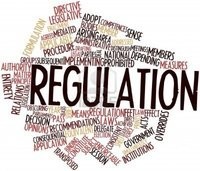On 10 June 2025, Health Canada issued ‘Guidance document: Information and submission requirements for biosimilar biologic drugs (2025 – Revised draft)’ [1]. Key to this new draft is the proposal to remove the requirement for biosimilar manufacturers to prove the safety and efficacy of their product through phase III clinical trials, see Table 1.
Health Canada has also opened a consultation period that runs till 8 September 2025.
Health Canada's guidance documents are in place to assist drug sponsors in meeting regulatory requirements. Although these documents do not carry the force of law, Health Canada generally uses them as guidelines when evaluating drug submissions.
| Table 1: Health Canada’s biosimilar drug submission requirements: current and proposed changes
|
| Existing guidelines
|
Proposed new guidelines
|
Clinical efficacy trial(s)
In most cases, a comparative clinical trial(s) is important to rule out clinically meaningful differences in efficacy and safety between the biosimilar and the reference biological drug. A clinical efficacy trial may not always be necessary, e.g. where there is a clinically relevant PD endpoint. In such cases, a scientific justification is needed and safety as well as comparative immunogenicity data are still required.
|
Comparative clinical efficacy and safety trial(s)
In most cases, a comparative clinical efficacy and safety trial(s) is not required. Safety and comparative immunogenicity data are still required and should be collected within the comparative clinical pharmacology studies but could be supplemented with data collected using other trial designs, e.g., studies designed to specifically focus on safety and/or immunogenicity. If a comparative clinical efficacy and safety trial(s) is deemed necessary, sponsors should provide a rationale to explain the purpose of the trial(s) in the context of a biosimilar submission.
|
Health Canada's guidance documents are in place to assist drug sponsors in meeting regulatory requirements. Although these documents do not carry the force of law, Health Canada generally uses them as guidelines when evaluating drug submissions.
High degree of similarity emphasized
Under current guidance, similarity between a biosimilar and its reference biological is assessed based on a broad set of data, including structural, functional, non-clinical, and clinical studies. The revised guidelines narrow this focus, emphasizing the need for ‘extensive comparative quality studies to demonstrate a high degree of similarity’.
Removal of need for comparative clinical efficacy and safety studies
Previously, the guidance stated that comparative clinical trials were important in most cases to rule out meaningful differences in efficacy and safety between a biosimilar and its reference biological. The revised policy marks a significant shift, stating that such trials are generally not required. Instead, biosimilar clinical studies will typically be limited to a comparative pharmacokinetic (PK) trial to establish PK equivalence.
Removal of detailed rationale for indication authorization
Current regulations require a scientific rationale for authorizing each indication of a biosimilar, sometimes requiring additional clinical data. The revised guidelines no longer specify the type of rationale needed and now only require that a ‘high degree of similarity’ be demonstrated for approval across indications.
Updated labelling requirements
While biosimilar labels must still include relevant safety and efficacy data from the reference biological, the revised guidance removes the requirement to include comparative data generated by the biosimilar itself. It also eliminates the prohibition on making claims of bioequivalence or clinical equivalence, potentially opening the door for such statements in future biosimilar product monographs.
International context: trends in Europe and the US
Health Canada’s proposed revisions are a reflection of international trends toward reducing clinical requirements for biosimilar approval. For example, on 1 April 2025, the European Medicines Agency (EMA) released a draft reflection paper [2, 3] that brought into question the necessity of comparative clinical studies for biosimilars. The EMA suggested that waiving certain clinical data requirements could streamline biosimilar development without compromising safety or efficacy. Public comments are invited through 30 September 2025.
Additionally, on 10 April 2025, in the US, President Trump signed an Executive Order (EO) directing the Secretary of Health and Human Services, through the Commissioner of Food and Drugs, to issue a report providing administrative and legislative recommendations that can accelerate biosimilar approval to be within 180 days.
This followed the Expedited Access to Biosimilars Act introduced by Senator Rand Paul, a bill set to ‘amend the Public Health Service Act to provide that clinical studies required for licensure of biological products as biosimilar shall not be required to include the assessment of immunogenicity, pharmacodynamics, or comparative clinical efficacy.’
Prior to the introduction of the bill and EO, in February 2025, Formycon announced it had discontinued its Phase III trial for a Keytruda (pembrolizumab) biosimilar following the FDA’s determination that such a trial was no longer necessary. The company plans to rely on Phase I data and a comprehensive analytical package instead. Additionally, on 30 April 2025, Sandoz announced plans to minimize Phase III trials for its pembrolizumab biosimilar, citing ongoing discussions with the FDA.
Related articles
Regulatory evolution and impact of simplified requirements for interchangeable biosimilars in the US
EMA concept paper towards a tailored clinical approach in biosimilar development
Switches between biosimilars and their reference products
References
1. Guidance document: Information and submission requirements for biosimilar biologic drugs (2025 - Revised draft) draft-biosimilars-guidance-external-consultation-eng.pdf
2. GaBI Online - Generics and Biosimilars Initiative. Advances in EMA plans to streamline biosimilar assessment [www.gabionline.net]. Mol, Belgium: Pro Pharma Communications International; [cited 2025 Jul 22]. Available from: www.gabionline.net/guidelines/advances-in-ema-plans-to-streamline-biosimilar-assessment
3. Reflection paper on a tailored clinical approach in biosimilar development.
https://www.ema.europa.eu/en/reflection-paper-tailored-clinical-approach-biosimilar-development
Permission granted to reproduce for personal and non-commercial use only. All other reproduction, copy or reprinting of all or part of any ‘Content’ found on this website is strictly prohibited without the prior consent of the publisher. Contact the publisher to obtain permission before redistributing.
Copyright – Unless otherwise stated all contents of this website are © 2025 Pro Pharma Communications International. All Rights Reserved.








 0
0











Post your comment